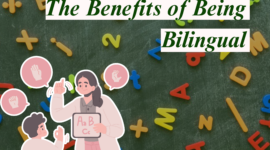The Power of the Socratic method is a simple yet powerful way to learn and grow. It is a way of asking thoughtful questions that help you think deeply about ideas and beliefs. This guide will explain what the Socratic method is, how it can build critical thinking skills, and how both students and parents can use it to spark meaningful conversations.
What Is the Socratic Method?

The Power of the Socratic method began with Socrates, an ancient thinker who believed that asking the right questions was key to learning. Instead of giving answers, Socrates would ask a series of questions. His goal was not to make you feel wrong but to encourage you to think through your ideas. By questioning assumptions, you learn to see the reasons behind your thoughts. The method invites you to explore ideas from different angles, making learning a more active process.
How the Socratic Method Builds Critical Thinking

When you use the Power of the Socratic method, you are not simply accepting answers. You are exploring why things are the way they are. This method helps you:
- Think Deeply: You learn to break down complex ideas into simpler parts.
- Challenge Assumptions: You begin to question why you believe what you do.
- Engage in Open Dialogue: By asking questions, you invite others to share their views. This makes conversations richer and more engaging.
This approach is not about having the perfect answer. It is about the journey of thought. You learn to appreciate the process of questioning and discovery, which builds a strong foundation for lifelong learning.
How to Practice the Socratic Method

The Socratic method is a skill you can practice in everyday conversations. Here are some simple ways to use it:
Ask Open-Ended Questions:
Instead of asking questions that lead to a yes or no, ask questions that require explanation. For example, instead of saying, “Do you like this book?” you might ask, “What did you like about this book and why?”
Listen Carefully:
When someone answers your question, listen closely. Your next question can be based on what they said. This shows that you value their opinion and helps the discussion flow naturally.
Encourage Reflection:
After discussing an idea, take a moment to pause and think about it. Ask yourself, “What did I learn from this conversation?” This reflection helps cement your understanding.
Keep the Conversation Friendly:
The goal is to explore ideas together, not to debate or argue. Keep your tone curious and supportive. This makes it easier for everyone to share openly.
By practicing these simple steps, you can use the Socratic method to make conversations more thoughtful and meaningful.
Benefits for Students

Students can gain a lot from using the Socratic method. Here’s how it can help in Boarding schools in India and beyond:
Improves Understanding:
When you ask questions, you learn to see the deeper meaning behind facts. This helps you remember what you study and understand it better.
Builds Confidence:
Exploring ideas through questions helps you see that learning is about discovery. This makes it easier to participate in class discussions and feel confident in your ideas.
Develops Communication Skills:
By practicing thoughtful questioning and listening, you become a better communicator. This skill is valuable in school projects, group work, and later in life.
Students who use the Socratic method learn to enjoy learning for its own sake. They become active thinkers who are not afraid to question and explore new ideas.
Benefits for Parents

Parents can also use the Power of the Socratic method to support their children’s learning and growth. Here are a few ways it can help:
Encourages Open Dialogue:
Using this method at home can turn everyday conversations into opportunities for learning. Instead of giving answers right away, you ask your child what they think. This helps them develop their own ideas and problem-solving skills.
Strengthens Critical Thinking:
When you ask questions that lead your child to explain their reasoning, you help them build a strong foundation for critical thinking. This can be very useful for school work and everyday challenges.
Builds a Supportive Environment:
When children see that their thoughts are valued, they become more willing to share. This creates a home environment where learning is fun and everyone feels heard.
By using the Socratic method at home, you can help your child become a confident and independent thinker.
Bringing the Power of the Socratic Method into Everyday Life

The Power of the Socratic method is not just for classrooms or serious debates. It can be part of your everyday life. Whether you are discussing a movie, a book, or even a news story, try to ask open questions that explore the reasons behind opinions.
Imagine discussing a favorite film with your family. Instead of asking, “Did you like the movie?” you might ask, “What did you think the movie was trying to say?” Such a question opens up a conversation that goes beyond surface-level opinions. It encourages everyone to share their thoughts and listen to one another.
Using the Power of the Socratic method in daily life can make even simple conversations more engaging. It turns every discussion into a chance to learn something new and understand different points of view.
How to Get Started
If you are new to the Socratic method, start small. Here are a few ideas to help you begin:
- During Dinner Conversations: Ask your child what they learned during the day and encourage them to explain their thoughts.
- While Reading Together: Discuss the characters and plot of a story. Ask questions like, “Why do you think the character made that choice?” or “What might happen next, and why?”
- At Homework Time: Instead of offering the answer right away, ask, “What do you think is the best way to solve this problem?” This helps your child think through the problem step by step.
Starting with small conversations can make the process natural. Over time, you will notice that everyone becomes more curious and open to exploring ideas.
Conclusion
The Socratic method is a timeless tool that invites us to think deeply and engage in meaningful dialogue. It is a simple way to build critical thinking skills that benefit both students and parents. By asking thoughtful questions and listening carefully, you can turn everyday conversations into opportunities for learning and growth.
Whether you are a student looking to understand your school subjects better or a parent hoping to support your child’s learning journey, the Socratic method can make a difference. It helps clear confusion, builds confidence, and shows that learning is a shared adventure. Give it a try and see how it transforms your conversations into moments of discovery.










